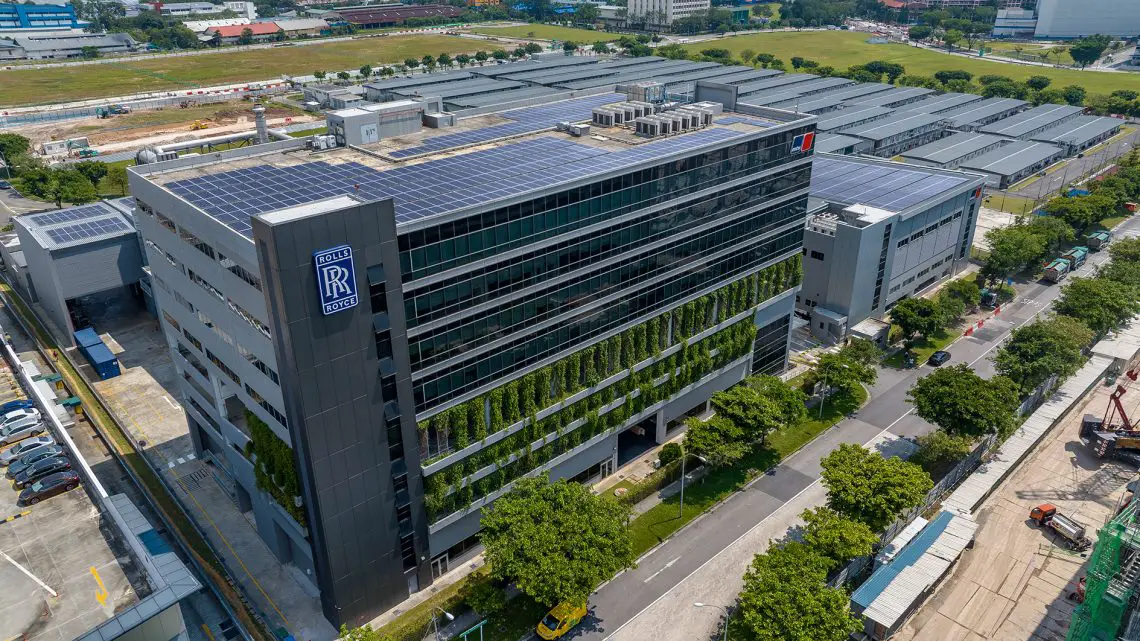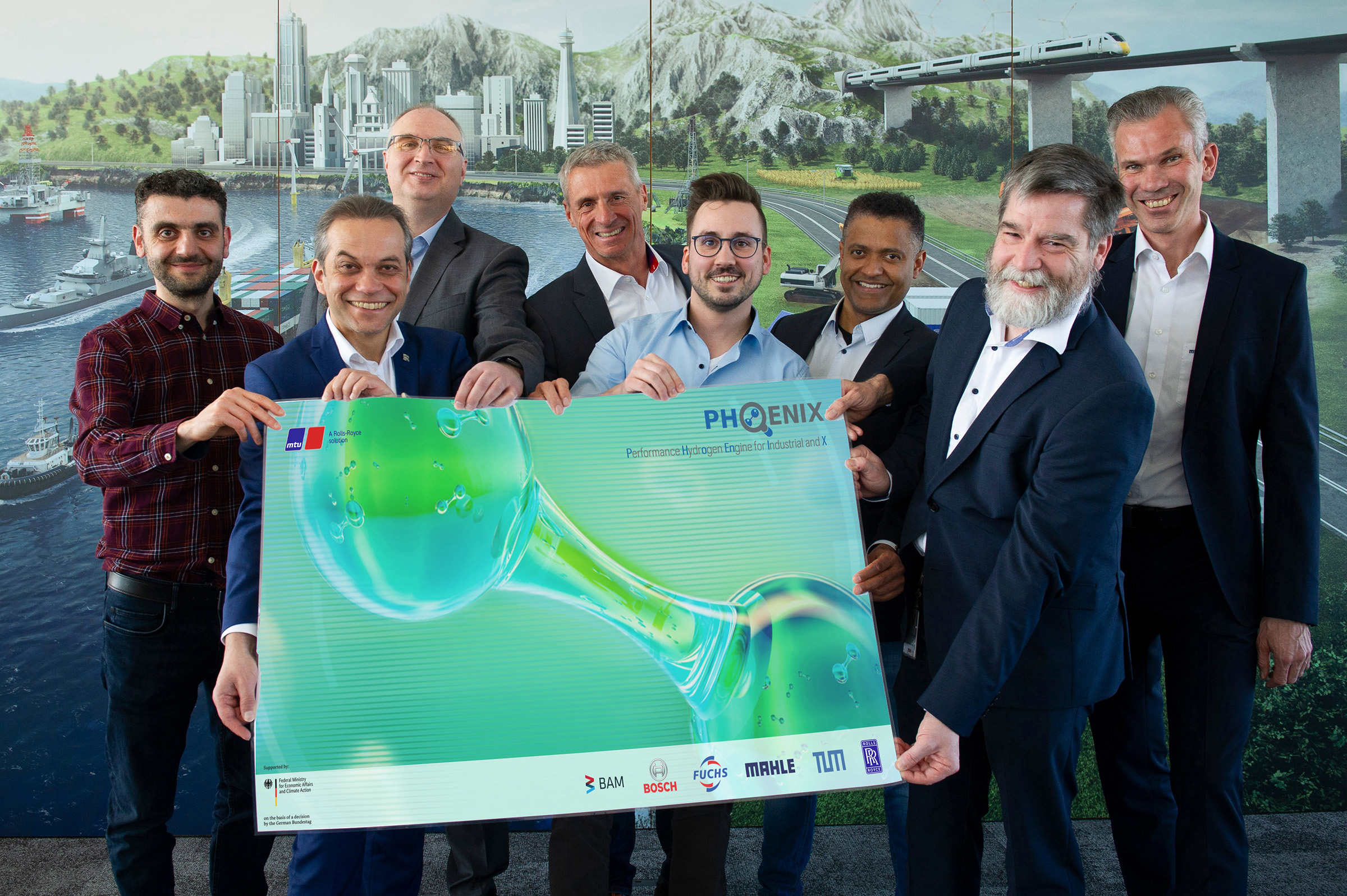
Rolls-Royce Spearheads Groundbreaking Hydrogen Engine Project
June 25, 2024In a groundbreaking move towards sustainable energy solutions, Rolls-Royce has launched the Phoenix project, a collaborative initiative involving five companies and research institutes. The project aims to develop the technologies necessary for a highly efficient, first-of-its-kind hydrogen combustion engine to power combined heat and power (CHP) systems.
Project Objectives and Goals
The Phoenix project is set to run for three years, during which the consortium will focus on creating a mature technology concept suitable for a complete prototype engine. This endeavor aligns with the German government’s power plant strategy, which includes the expansion of renewable energy sources and the construction of more gas-fired power plants to address the variability of renewable resources.
Central to this strategy is the development of smaller, decentralized gas engine plants capable of flexibly compensating for the fluctuating feed-in of wind and solar power. These plants are essential for maintaining grid stability amid changing weather conditions. To further reduce CO2 emissions, biogas gensets and the initial conversion of gas engines for hydrogen use are already in place. The ultimate goal is to create a next-generation stationary energy plant that can operate carbon-neutrally when fueled by green hydrogen.
Vision for The Hydrogen Engine and Efficient Conversion Pathways
“We are convinced that combustion engines will remain an essential part of the provision of a reliable energy supply during the energy transition,” said Dr. Jörg Stratmann, CEO of Rolls-Royce Power Systems. “We are making them climate-friendly with sustainable fuels. That’s why we at Rolls-Royce are investing in the development of next-generation hydrogen engines. The consortium in the Phoenix project, with its combined expertise, is a guarantee of the success in tackling this major technical challenge.”
Dr. Jörg Stratmann’s statement underscores Rolls-Royce’s commitment to pioneering advancements in hydrogen engine technology. By leveraging sustainable fuels, the company aims to make combustion engines more climate-friendly, ensuring their viability during the energy transition. The collaborative expertise within the Phoenix project consortium is pivotal to overcoming the significant technical challenges associated with developing these next-generation engines. This initiative reflects a forward-thinking approach to achieving reliable and sustainable energy solutions.

Consortium Members and Their Roles
The Phoenix project brings together a diverse group of partners, each contributing specialized expertise:
- Rolls-Royce (Coordinator): Leading the project and overseeing the overall development.
- Institute for Sustainable Mobile Propulsion Systems at the Technical University of Munich: Providing academic research and development support.
- MAHLE Konzern: Developing the injection system essential for hydrogen combustion.
- Fuchs Lubricants Germany GmbH: Creating a new lubricant tailored for the hydrogen engine.
- German Federal Institute for Materials Research and Testing (BAM): Conducting materials testing and validation.
- Robert Bosch AG: Working on the ignition system and other critical components.
The project is funded by the German Federal Ministry for Economic Affairs and Climate Protection, with a total investment of nearly five million euros.
Rolls-Royce’s Commitment to Green Hydrogen
This project builds on Rolls-Royce’s ongoing efforts to advance green hydrogen technology. In April of 2023, the company announced plans to produce green hydrogen at its Friedrichshafen headquarters. Simultaneously, Rolls-Royce unveiled its strategy for testing fuel cell systems and mtu hydrogen engines.
The company has already achieved significant milestones, including the successful testing of its 250kW fuel cell demonstrator system. This system promises uninterruptible power during outages, showcasing the potential of fuel cells in providing reliable energy solutions.
Looking ahead, Rolls-Royce aims to commence green hydrogen production and manage much of the value chain. The company is also developing standardized mtu electrolyzers with a 4MW output capacity, scalable to over 100MW. These efforts underscore Rolls-Royce’s commitment to leading the transition to sustainable and renewable energy sources.
Conclusion
 The Phoenix project represents a significant step forward in the quest for sustainable energy solutions. By leveraging the collective expertise of its consortium members, Rolls-Royce is poised to develop a pioneering hydrogen combustion engine that could revolutionize the CHP systems and contribute to a carbon-neutral future. With ongoing advancements in green hydrogen technology, the future of renewable energy looks promising.
The Phoenix project represents a significant step forward in the quest for sustainable energy solutions. By leveraging the collective expertise of its consortium members, Rolls-Royce is poised to develop a pioneering hydrogen combustion engine that could revolutionize the CHP systems and contribute to a carbon-neutral future. With ongoing advancements in green hydrogen technology, the future of renewable energy looks promising.



 With over 15 years of reporting hydrogen news, we are your premier source for the latest updates and insights in hydrogen and renewable energy.
With over 15 years of reporting hydrogen news, we are your premier source for the latest updates and insights in hydrogen and renewable energy.
It’s easy to make ICE run on hydrogen and the emissions are almost zero. It’s much easier to run ICE on methane and emissions are infinitely better than with petroleum. Not perfect but really good enough to sustain our planet. As compressed gas storage efficiency is considered, a tank holds three times more methane than hydrogen because of their molecular configuration.
It is energy-insanity to manufacture hydrogen through electrolysis and then return it back to electricity at 30% round trip.
The small modular reactor (SMR) era is upon us, with SMRs capable of supplying all base load electricity and, when paired with PEM electrolysers, capable of load following grid demand in milliseconds. With the possibility of 4 revenue streams, the hydrogen manufactured can almost be regarded as a by-product and sold into existing markets:.
This is how greener-than-green, nuclear enabled hydrogen (NEH) should be produced and used: